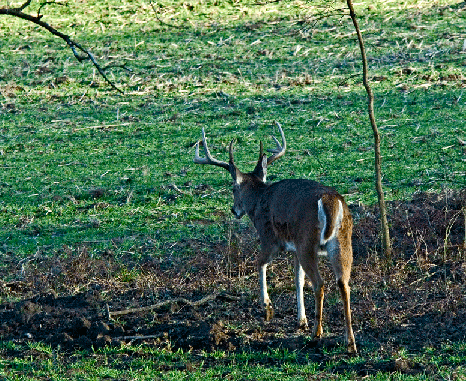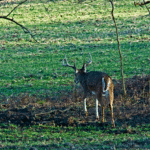
Every state has them
Louisiana Sportsman is of course the best outdoor publication around, but I do read a few others. So when the March 2012 issue of Petersen’s Hunting hit the mailbox I took a quick look at the petersenshunting.com page for the monthly highlights.
The photo of Melissa Bachman with her bow at full draw caught my attention right away, but also on the page was a smaller photo of handcuffs with the title “Dumbest Game Laws on the Books.”
A visit to “petersenshunting.com/laws” revealed a list of eight laws considered to be among the nation’s worst.
They are pretty bad, and bad laws are tough for wildlife enforcement agents to enforce. So what constitutes a “bad” fish and wildlife law? Usually it comes down to one of two things: It is unnecessary or unenforceable.
Here in Louisiana most of our regulations do make sense and are written in such a way as to be enforceable. But we are not totally immune. In this column we’ll take a look at a few dumb laws that give enforcement agents nightmares. Some are still around, and some have been modified or eliminated.
One of my favorite dumb laws involves that most sacred of Southern staples, the sweet potato. Back in the ’80s, the sweet potato weevil began to creep across the state, infesting fields and damaging the sweet potato crop. In an effort to keep the weevil from infesting the entire state, the Louisiana Department of Agriculture and Forestry imposed regulations to control transportation and prevent further weevil infestation.
One of those wound up in wildlife and fisheries regulations, and it prohibited the placement of sweet potatoes as feed for deer by hunters. That is not an exact quote, but that’s what it boiled down to.
As word began to spread among hunters, the reason for the new law was not understood at all. But the perception was that since it was okay to “bait” deer with anything under the sun EXCEPT sweet potatoes, it could only mean the sweet tater must be the best bait of all!
With visions of deer stampeding to a pile of plump sweet potatoes, more than a few people willing to take the risk on a poorly written law hauled tons of taters to the woods. Talk about a backfire.
Since the only person prohibited from placing sweet potatoes is the hunter and the only way to make a case is to be able to prove the guy is hunting deer on or over illegally placed sweet potatoes, enforcement is all but impossible.
The law is still on the books to this day, but the real reason for the law is now more widely understood. So we don’t find as many sweet potatoes around deer stands.
I don’t know the status of weevil infestation, so please don’t ask.
And who in waterfowl hunting can forget Louisiana’s goose creeping ban of the 1990s?
For those not around in those days, let me explain. An undercover investigation by U.S. Fish and Wildlife Service resulted in a widely publicized video of a group of poachers crawling down a drainage ditch of a crop field until well within shotgun range of a large flock of geese. They then fired multiple rounds into the flock, resulting in a significant over-bag massacre.
The outrage among sportsmen resulted in a Louisiana Wildlife and Fisheries Commission regulation prohibiting the taking of geese by “creeping.”
The problem was that no one could clearly explain exactly what defined “creeping.” The regulation also had no provision for allowing a hunter to creep within range of a crippled goose in order to dispatch the bird and include it in his bag as required by law.
To compound the problem, landowners liked the regulation because they believed it would alleviate trespass problems in goose fields.
As far as law enforcement officials were concerned, it was a bad and unnecessary law. No one was really sure what action was a criminal act. In addition it was already illegal to take more than the daily limit and to trespass on private land.
But the goose creeping law did manage to stay around for a few years until law enforcement concerns proved well founded and the Commission voted to remove the regulation.
It is not always Commission regulations or laws generated by the Legislature that cause problems. Sometimes administrative rules and procedures with loopholes can cause unenforceable situations with serious consequences.
Years ago the Louisiana Department of Wildlife and Fisheries allowed commercial license holders to apply for licenses by mail. The problem was the applicant could go ahead and pursue a commercial activity, such as fishing with nets, while waiting for the licenses to arrive in the mail. So long as he had a copy of the application and a money order receipt as “proof” the license was on the way, everything was okey dokey.
Well, it did not take long for word to get around about an easy way to beat the system: One simply had to cash in the money order, pocket the fee, trash the original application and carry the required copies, just in case an enforcement agent showed up.
It was not long before enforcement agents noticed a serious delay in processing licenses, as evidenced by the tattered, worn and months-old copies. When we checked with commercial license section, they were all caught up on processing but were noticing a distinct decline in the number of licenses sold for the current year.
Hmmm.
The significant loss in revenue, along with technological advances, prompted the wheels of government to eventually grind out cleaner application procedures to make it a little more difficult to commit license fraud.
Our last dumb law is perhaps the most hotly contested license law to date in Louisiana. All the older enforcement agents in the state already know it’s the hook-and-line law, commonly called the cane-pole exemption.
For years in Louisiana, no fishing license was required if the angler was using pole, hook and line without benefit of a fishing reel.
At the same time a recreational fishing license could be had for even less than the current $9.50 resident basic license. And it was not at all uncommon to see fishermen in expensive boats, snacking on pricey food and drink while dodging the cost of a license by using the pole.
The funny thing was one could almost always find a nice rod and reel stashed in the grass or lying in the bottom of the boat during a compliance check.
In the 1990s, sportfishing organizations began to push to eliminate the hook-and-line exemption in order to increase revenue for fisheries management.
Legislation met heavy resistance; many legislators throughout the state strongly opposed license requirements for “the poor man.” Some were philosophically opposed to requiring a simple hook, line and pole fisherman to purchase a license.
After several years, a compromise was reached and the $2.50 hook and line (pole) license became law. While we do now have the law, the penalty is minimal. But it is law, and most people go ahead and purchase the basic license at full price when required.
Yes, Louisiana has had its share of bad laws. Some were just poor decisions in response to real problems. Others are unnecessary regulations promulgated to address specific actions that are already illegal when existing laws are properly interpreted.
They are not the first nor will they be the last. So keep an eye on bills in the Legislature and proposed changes to Louisiana Wildlife and Fisheries Commission regulations.
You never know what they might try to do to the sweet potato next.
Get outdoors and be safe.




